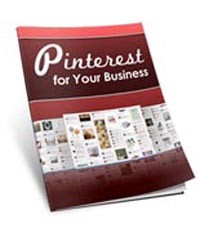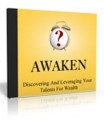
 License Type: Personal Use
License Type: Personal Use  File Size: 1,158 KB
File Size: 1,158 KB File Type: ZIP
File Type: ZIP
 SKU: 18538
SKU: 18538  Shipping: Online Download
Shipping: Online Download
Ebook Sample Content Preview:
Use hashtags
Just like you do on Twitter, tag your pins by adding hashtags to the description. This also helps users find your pins if they’re shared on Twitter. For example, a Whole Foods pin on their “What’s for Dinner” board might be as simple as #healthydinnerrecipes
Create theme based boards
You’ll increase the value of your Pinterest pins by creating theme-based boards. The more specific the better. For example, instead of a recipes board you might have a breakfast recipes board. Instead of a home organization board you might have a “Home office organization” board. Be specific so followers know exactly what your board is about.
Don’t over promote yourself
It’s fine to create pins that link to your website, blog, online articles, and products and so on. However, keep it under control. Pinterest is a social networking site, not an advertising directory. You’ll make more friends and gain more followers if you’re focused on providing value for them.
Include links in the description
Include accurate and interesting descriptions with each pin you post. The description may motivate others to repin your pins. It may also motivate discussion. Consider including questions in your description as well as benefits - remember that we all want to know “WIIFM?” What’s in it for me?
Pay Attention to Copyright
There’s a lot of controversy about Pinterest and their copyright policy. When you agree to the terms and sign up for a Pinterest account you’re agreeing to not infringe on anyone’s copyright. Here’s one statement in the Pinterest terms that scares many:
“You agree to defend, indemnify, and hold Cold Brew Labs, its officers, directors, employees and agents, harmless from and against any claims, liabilities, damages, losses, and expenses, including, without limitation, reasonable legal and accounting fees, arising out of or in any way connected with (i) your access to or use of the Site, Application, Services or Site Content, (ii) your Member Content, or (Hi) your violation of these Terms."
This means that if Pinterest gets sued because you pinned (or repinned) a pin that violates copyright then you have to pay for their legal fees. Scary, right?
Make sure when you pin images that you find online that you have permission to pin them. If you are in doubt, ask the owner for permission. Source any and all pins and make sure to include links to the sites you pull images from. As the Internet continues to evolve and Pinterest continues to grow, no doubt that these issues will be sorted out. Already, there are “no follow” tools so people can prevent their images from being pinned.
Remember keywords
Pinterest members use keywords to search for pins. Imagine you’re building a board to store ideas to redecorate your kitchen. You might search by kitchen appliances, kitchen design and more. Adding these keywords to your pins by including them in the description will help members find your pins.







